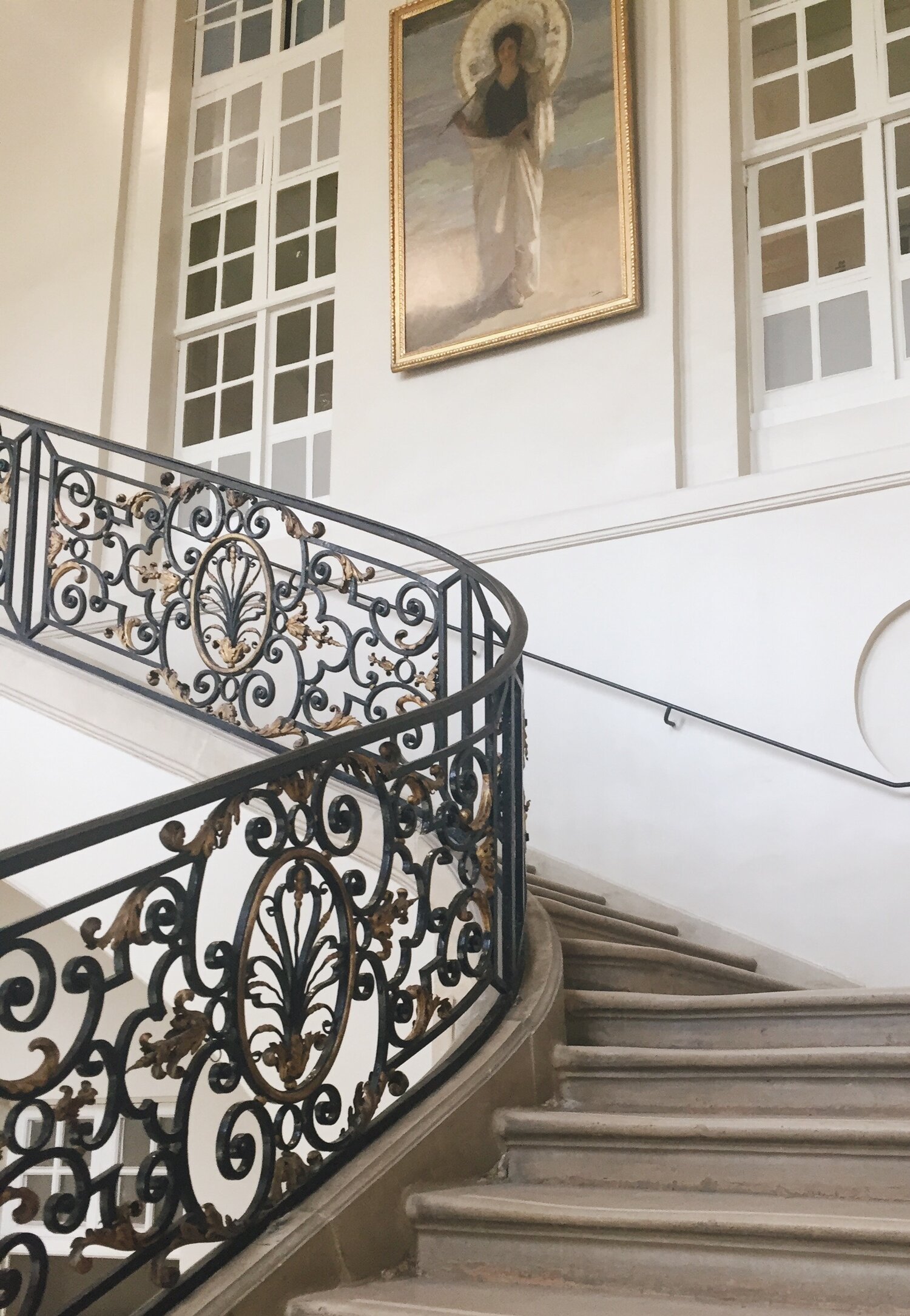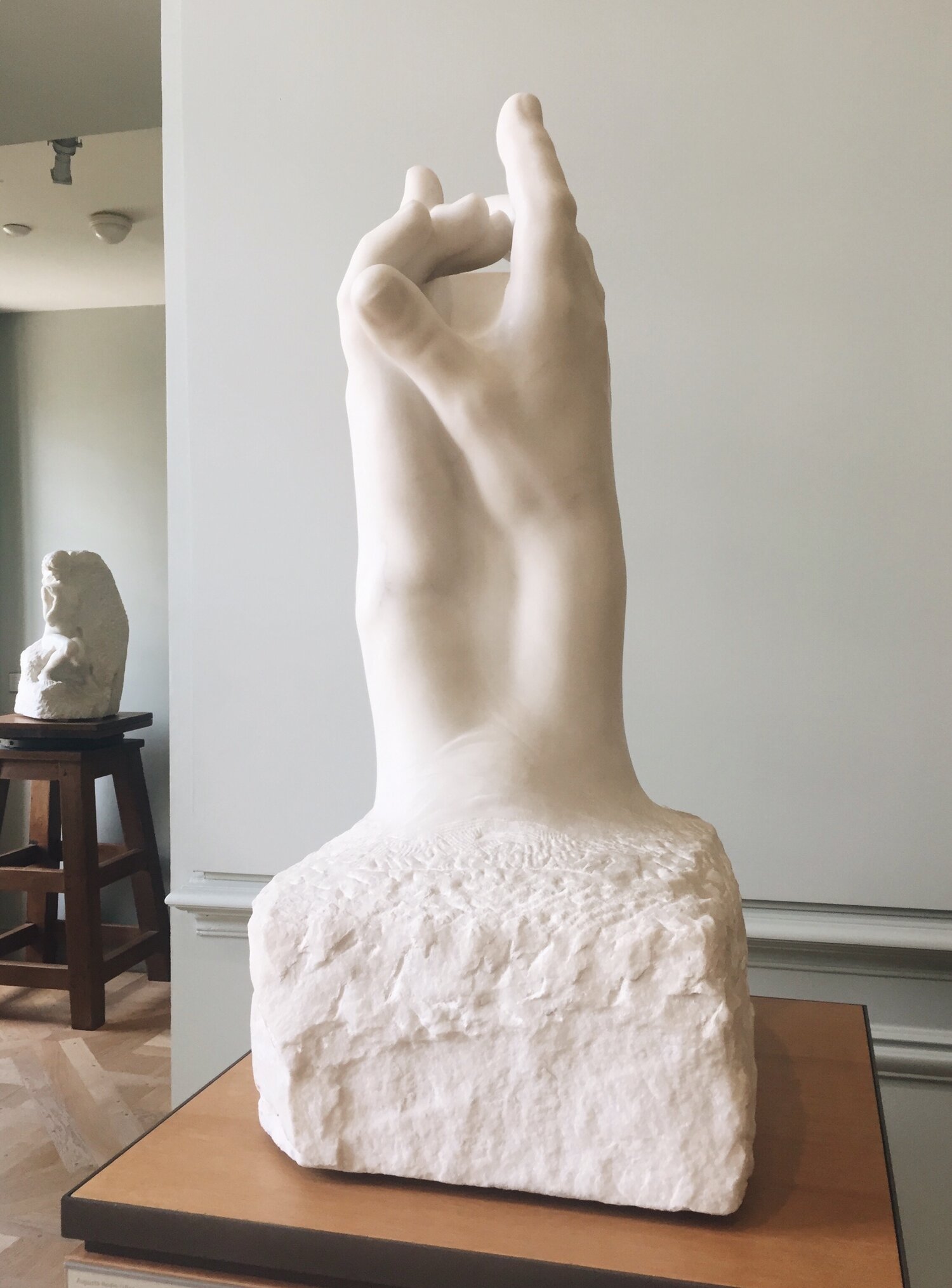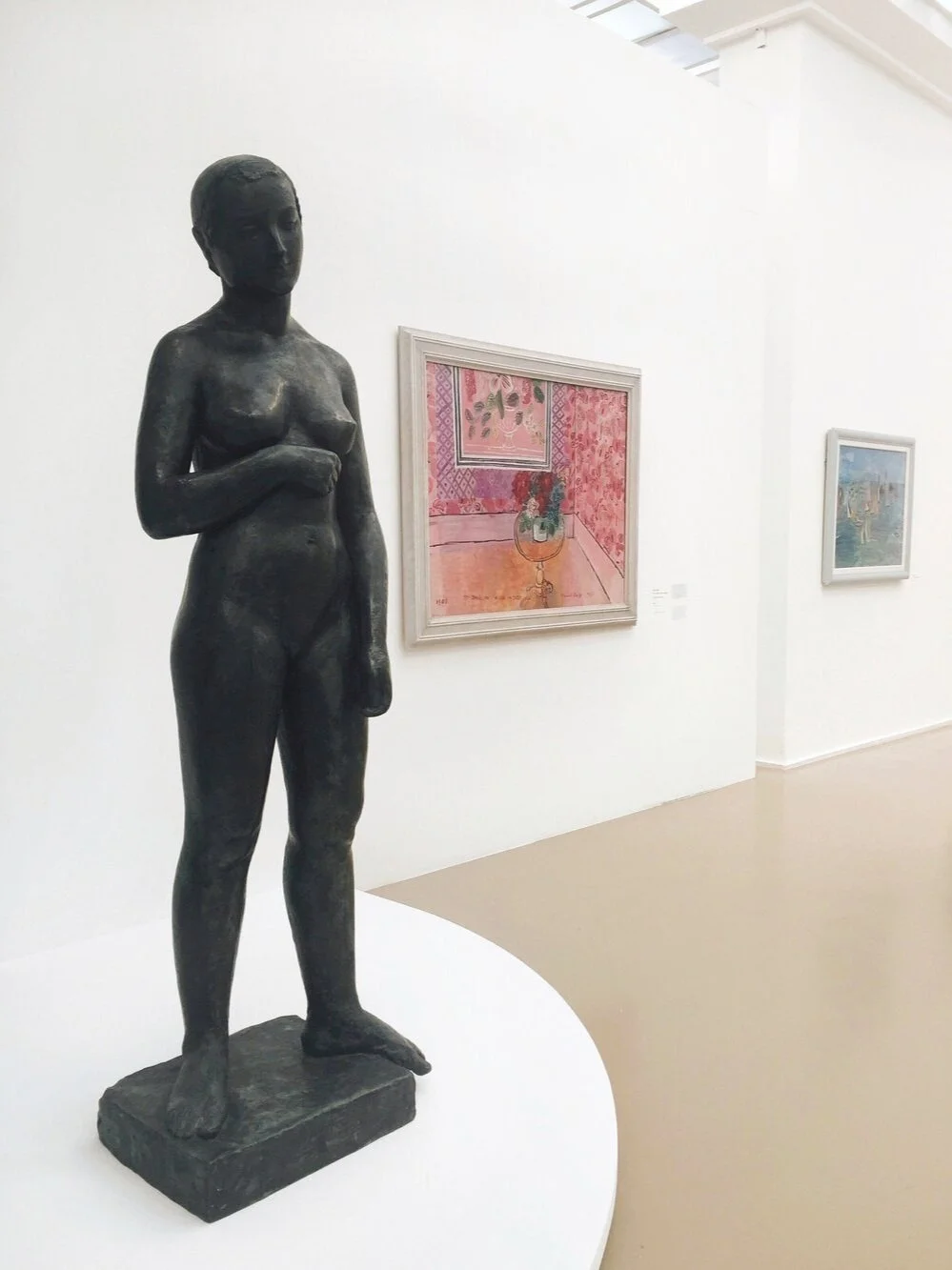Museum Review: Musée Rodin Paris
Even after almost two years living in France, I never got around to visiting the Musée Rodin (very un-Parisian of me). One of the most elegant and photogenic institutions in the city, Musée Rodin consists of the dignified Hôtel Biron and a lush garden dedicated to the works of the renowned French sculptor. I finally visited during a hot summer afternoon. Here’s what you should know about the museum:
Auguste Rodin
Auguste Rodin (1840-1917) is considered by many as the father of modern sculpture. Walking into the museum and seeing his countless pieces, it’s pretty obvious why Rodin was deemed such a talented and technical artist. Working primarily in bronze and marble, his creative ability made him the most sought-after and respected portrait sculptor of his time.
Rodin’s most famous work is The Thinker, a contemplative statue of a pensive seated male. He created many iterations in different materials and sizes, but the most famous one is here in Paris at his namesake museum, cast in 1904. He also created some rather scandalous works, most notably the Burghers of Calais (1889), an emotional commemoration to French hostages of the Hundred Year War.
His traditional and impeccably-executed technique, his embrace of modern philosophies, and his ability to carve intimate and emotive scenes explain his critical acclaim and enduring popularity.
Practical Information
The museum is located in the 7th arrondisement (Metro: Varenne or Invalides) and is open everyday except Monday, from 10h-18h30. General admission is 13 euros, but free for 18-25 year-old EU citizens and arts students enrolled in a French institution, among other designations (see further admission info here).
For the time being, masks are required at all times while in the Hôtel Biron portion of the museum, but not required in the sculpture garden.
The Collection
The collection includes 6600 sculptures, 8000 drawings, 8000 old photographs and 7000 art objects. So, quite a handful. The mission of the museum is to present a coherent and complete vision of Rodin’s oeuvre. There is a lot of art on display, but what impressed me was how the sheer number of works presented was never overwhelming. The walkthrough is pretty strategically designed, each room is in a circular format with an open layout so works from each gallery are visible from one room to the next. Lots of windows and mirrors enhance this effect. Certain sections of the museum have special features: elegant checkered floors, molded ceilings, and a beautiful massive staircase.
Rodin’s sculptures, studies, and sketches are placed in an organic way throughout the museum, to evoke an atelier, but in a logical and chronological manner that demonstrates themes, subjects, or materials that interested the artist. A visit to the museum is meant to be an immersive encounter of Rodin’s world.
There is also a room dedicated to the artist Camille Claudel and her works. A talented sculptor in her own right, she acted as a model, confidante, and lover to Rodin. Their relationship was known to be passionate yet turbulent—the perfect makings for an iconic artists’ love affair.
The Garden
The outdoor spaces here are nothing short of stunning. Perfectly manicured hedges, tree-lined pathways, plump rosebushes…I could go on. A symmetrical parterre leads from the hotel to a large circular fountain featuring a Rodin sculpture emerging from its center. It’s a very romantic courtyard, and people will come just to enjoy the outdoor space. Of course, I saw The Thinker as well as the Burghers of Calais. There is also a marble garden, featuring a display of smaller, less formal works by Rodin.
This museum is the perfect choice for a sunny day—when you want to soak in some culture but don’t want to waste sunlight hours. It’s a relatively quick and digestible visit, an ideal museum for an afternoon meetup.











